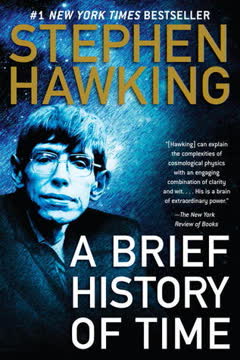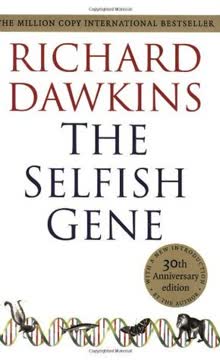Key Takeaways
1. Humanism: The dominant religion of modern times
"If you want to understand our future, cracking genomes and crunching numbers is hardly enough. We must also decipher the fictions that give meaning to the world."
Humanism as a new faith. Humanism has replaced traditional religions as the dominant belief system in modern times. It places human experiences and desires at the center of moral and ethical considerations. This shift occurred as scientific progress weakened the authority of traditional religions.
Three branches of humanism:
- Liberal humanism: Emphasizes individual freedom and rights
- Socialist humanism: Focuses on collective welfare and equality
- Evolutionary humanism: Believes in the potential for human improvement through natural selection
Impact on society: Humanist ideals have shaped modern political, economic, and social systems, influencing everything from democratic governance to capitalist markets and personal relationships.
2. The scientific challenge to free will and individualism
"To the best of our scientific understanding, determinism and randomness have divided the entire cake between them, leaving not even a crumb for 'freedom'."
Questioning free will. Recent scientific discoveries in neuroscience and genetics challenge the humanist belief in free will. Studies show that our decisions can be predicted by brain activity before we're consciously aware of them, suggesting that our choices may be determined by factors beyond our control.
Implications for individualism:
- The concept of a single, indivisible self is being challenged
- Our decisions may be the result of competing neural processes rather than a unified "self"
- This undermines the liberal notion of individual responsibility and autonomy
Ethical and legal consequences: If free will is an illusion, it raises questions about personal responsibility, criminal justice, and the foundations of liberal democracy.
3. The conflict between experiencing and narrating selves
"The narrating self is akin to Gazzaniga's left-brain interpreter. It is forever busy spinning yarns about the past and making plans for the future."
Two selves within. Psychological research reveals a divide between our moment-to-moment experiences (the experiencing self) and the stories we tell about our lives (the narrating self).
Characteristics of the two selves:
- Experiencing self: Lives in the present, feels pain and pleasure
- Narrating self: Creates coherent stories, makes decisions based on memories
Decision-making implications:
- The narrating self often makes decisions that don't align with the experiencing self's interests
- This explains why people often make choices that don't maximize their happiness
- Understanding this divide can help us make better decisions and design more effective policies
4. Technology's potential to manipulate human desires
"If you want to see philosophy in action, pay a visit to a robo-rat laboratory."
Technological control. Advances in neuroscience and technology are making it increasingly possible to manipulate human desires and decision-making processes.
Examples of manipulation:
- Robo-rats: Scientists can control rat behavior through brain implants
- Transcranial stimulation: Can enhance human cognitive abilities
- Mood-altering drugs: Can change emotional states and decision-making
Ethical concerns:
- Who will control these technologies?
- How will they affect human autonomy and identity?
- Could they be used for oppression or social control?
5. The rise and fall of liberal democracy
"As of 2016, there is no serious alternative to the liberal package of individualism, human rights, democracy and a free market."
Triumph of liberalism. After defeating fascism and communism in the 20th century, liberal democracy emerged as the dominant global ideology.
Key components of liberal democracy:
- Individual rights and freedoms
- Free market economics
- Democratic governance
- Belief in human progress
Challenges to liberalism:
- Rising inequality and economic instability
- Technological disruption of labor markets
- Environmental crises
- Resurgence of nationalism and populism
Uncertain future: While liberal democracy currently has no serious ideological competitors, its ability to address 21st-century challenges remains uncertain.
6. Religion's struggle to remain relevant in the scientific age
"Religion and technology always dance a delicate tango. They push one another, depend on one another and cannot stray too far away from one another."
Science vs. religion. Traditional religions are struggling to maintain relevance in an age dominated by scientific explanations and technological progress.
Challenges faced by religions:
- Scientific explanations for natural phenomena
- Technological solutions to human problems
- Changing social norms and values
Adaptation strategies:
- Reinterpreting religious texts in light of scientific discoveries
- Focusing on ethical and existential questions
- Embracing technological tools for outreach and community-building
Potential outcomes: While some predict the eventual demise of traditional religions, others foresee a continued coexistence and mutual influence between science and faith.
7. The potential end of Homo sapiens as we know it
"Homo sapiens is not going to be exterminated by a robot revolt. Rather, Homo sapiens is likely to upgrade itself step by step, merging with robots and computers in the process."
Technological evolution. Advances in biotechnology, artificial intelligence, and other fields may lead to fundamental changes in human nature and capabilities.
Potential transformations:
- Enhanced cognitive abilities through brain-computer interfaces
- Genetic engineering to eliminate diseases and enhance traits
- Merging of human consciousness with artificial intelligence
Ethical and existential questions:
- What does it mean to be human in this new context?
- How will these changes affect social inequality?
- Who will control the direction of human evolution?
Uncertain future: While these developments offer exciting possibilities, they also pose significant risks and challenges to our current understanding of humanity and society.
Last updated:
FAQ
What's Homo Deus: A Brief History of Tomorrow by Yuval Noah Harari about?
- Exploration of Future Challenges: The book examines humanity's future, focusing on new challenges as we gain control over famine, plague, and war.
- Human Evolution and Technology: Harari discusses how biotechnology and information technology are reshaping human existence, suggesting humanity is on the brink of becoming "Homo Deus."
- Philosophical and Ethical Implications: It delves into ethical dilemmas posed by our newfound powers, including the pursuit of immortality and happiness.
Why should I read Homo Deus by Yuval Noah Harari?
- Insightful Perspective on Humanity: Harari provides a thought-provoking analysis of humanity's future, essential for understanding contemporary issues.
- Engaging and Accessible Writing: The book is written in a compelling style, making complex ideas accessible to a broad audience.
- Encourages Critical Thinking: It poses challenging questions about technological advancements and ethical responsibilities.
What are the key takeaways of Homo Deus by Yuval Noah Harari?
- Humanity's New Agenda: As we control traditional threats, we must confront new challenges related to our power and ambitions.
- The Role of Technology: Technology is both a tool for progress and a potential source of new problems, with significant impacts on human life.
- Ethical Considerations: The book raises important ethical questions about the future, including the implications of pursuing immortality and happiness.
What are the best quotes from Homo Deus by Yuval Noah Harari and what do they mean?
- "Famine, plague, and war...": Highlights ongoing challenges despite progress in controlling these issues.
- "If we are indeed bringing...": Prompts readers to think about future challenges as traditional threats are managed.
- "Humans are algorithms...": Reflects Harari's view of humans as complex systems driven by biological processes.
How does Homo Deus by Yuval Noah Harari relate to the concept of "Homo Sapiens"?
- Evolutionary Perspective: Discusses the transition from Homo Sapiens to Homo Deus, driven by technological advancements.
- Human Distinctiveness: Explores traits that allowed Homo Sapiens to dominate, such as cooperation in large groups.
- Future Identity: Raises questions about humanity's future identity as we gain god-like powers.
What is the "New Human Agenda" discussed in Homo Deus by Yuval Noah Harari?
- Shifting Focus: Transition from survival issues to tackling challenges related to technological advancements.
- Emerging Ethical Dilemmas: New ethical dilemmas arise, particularly concerning biotechnology and AI.
- Future Aspirations: Suggests humanity's next targets may include immortality and happiness, requiring a reevaluation of values.
What are the implications of biotechnology discussed in Homo Deus by Yuval Noah Harari?
- Power and Responsibility: Biotechnology gives humanity unprecedented power over life, with significant ethical responsibilities.
- Potential for Inequality: Warns that biotechnology could exacerbate inequalities, raising questions about access and fairness.
- Redefining Life: As we manipulate life, the definition of being human may change, affecting identity and values.
How does Homo Deus by Yuval Noah Harari address the concept of happiness?
- Pursuit of Happiness: As traditional threats are managed, happiness may become a central focus for humanity.
- Biochemical Manipulation: Explores potential for manipulating biochemistry to enhance happiness, raising ethical concerns.
- Cultural Perspectives: Highlights varying cultural definitions of happiness, complicating the pursuit of a universal definition.
What does Homo Deus by Yuval Noah Harari say about the future of war?
- Decline of Traditional Warfare: Argues traditional warfare is declining, but new forms of conflict may arise.
- Changing Nature of Conflict: Future conflicts may be driven by technology rather than territorial disputes.
- Ethical Considerations: Emphasizes the need for ethical considerations regarding technology use in conflict.
How does Homo Deus by Yuval Noah Harari explore the relationship between humans and animals?
- Human Superiority: Examines belief in human superiority over animals, questioning its ethical implications.
- Animal Consciousness: Discusses growing recognition of animal consciousness and associated ethical responsibilities.
- Evolutionary Connections: Highlights evolutionary connections between humans and animals, challenging strict divides.
What are the potential dangers of the future as outlined in Homo Deus by Yuval Noah Harari?
- Technological Risks: Warns that empowering technologies could pose significant risks, requiring careful regulation.
- Loss of Control: Raises concerns about maintaining control over technologies, particularly AI and biotechnology.
- Existential Threats: Suggests humanity may inadvertently create existential threats, urging critical thinking about long-term implications.
How does Sapiens and Homo Deus by Yuval Noah Harari address the concept of human rights?
- Historical Context: Discusses how human rights emerged as social constructs, not universal truths.
- Cultural Variability: Highlights varying cultural interpretations of human rights, questioning their universality.
- Future Challenges: Warns that evolving technology may require adapting the definition and application of human rights.
Review Summary
Sapiens and Homo Deus receive high praise from readers, with an average rating of 4.42/5. Reviewers find the books thought-provoking, well-researched, and enlightening. They appreciate Harari's unique perspective on human history, covering cognitive, agricultural, and technological revolutions. Many readers consider the books must-reads, praising their ability to challenge conventional thinking. Some critics find the second book repetitive or overly speculative. Overall, readers value the books for their insights into human evolution, current society, and potential future developments.
Similar Books










Download PDF
Download EPUB
.epub digital book format is ideal for reading ebooks on phones, tablets, and e-readers.










